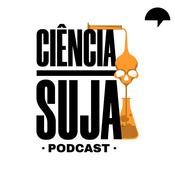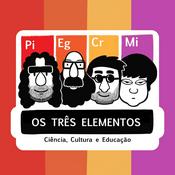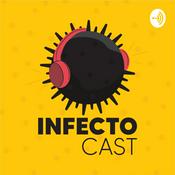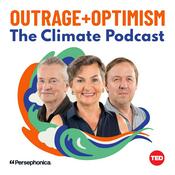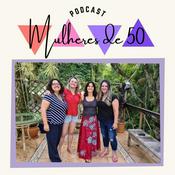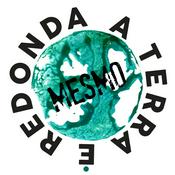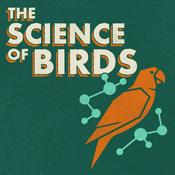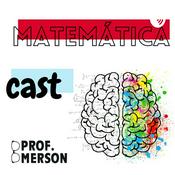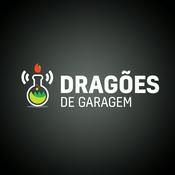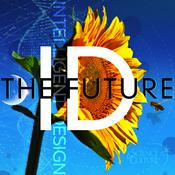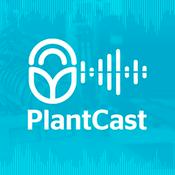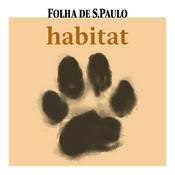76 episódios
- In this episode of the Computomics podcast, Vonnie Estes, VP of Innovation at the International Fresh Produce Association (IFPA), shares insights on the challenges the produce industry faces, particularly around climate change, pest management, and cold chain logistics. She discusses the importance of AI and machine learning in enhancing supply chain efficiency and food safety. Vonnie also highlights IFPA’s initiatives, such as "Supply Chain of the Future" and efforts to reduce single-use plastic in packaging. A grant program supports innovation in the produce sector, offering funding opportunities for startups in developing solutions to industry problems.
More:
Vonnie Estes on LinkedIn
International Fresh Produce Organization (IFPA)
The Fresh Supply Chain of the Future
Fresh Takes on Tech podcast - In this episode of the Computomics podcast, Pernille Ollendorff Hede, CEO and co-founder of Healthycrop, discusses the company's innovative approach to fungal-resistant crops. Healthycrop boosts the production of Nepenthesin, a naturally occurring enzyme in plants, to degrade fungal enzymes, preventing fungal growth without the need for fungicides. Using cis-genesis and gene editing techniques, Healthycrop enhances the plant's natural defense. While these techniques are classified as genetically modified (GM) in Europe, they are considered non-GM in the U.S. Pernille shares the company's mission to revolutionize agriculture by offering sustainable solutions and hopes for regulatory changes in Europe to facilitate broader adoption.
More:
Healthycrop - Homepage
Pernille Ollendorff Hede on LinkedIn - In this episode of the Computomics podcast, bioinformatics analyst Michelle Hagen describes how her work bridges biology and data science. As a data analyst in bioinformatics and plant breeding, Michelle transforms raw genetic and environmental data into insights that guide breeding decisions. She particularly enjoys the teamwork, problem-solving, and creativity involved in her job.
Michelle works on Computomics’ Climate-Smart Breeding technology xSeedScore and the Metagenomics Analysis Platform MORPHEUS. Her main tasks involve performing data quality control, running bioinformatics pipelines, and creating interactive dashboards for customers. Her work supports the development of climate-resilient, high-yield crops, and it helps breeders make data-driven breeding faster and more precise. - Glendon Ascough, Research Director at Starke Ayres, discusses the evolution of the company from a historic seed merchant to Africa’s largest independent vegetable breeding company. He shares his personal journey into plant science, driven by a fascination with genetics, and highlights the company’s focus on breeding disease-resistant vegetable varieties tailored to local and international markets. He talks about the collaboration with Computomics, using machine learning to predict sweet corn hybrid performance. Glendon emphasizes the importance of high-quality, diverse phenotypic data and the shift in breeder mindset required for data-driven approaches.
- This episode features Dr. Michael Kotutwa Johnson, a Hopi dryland farmer from Arizona’s Colorado Plateau. He shares how his community has grown crops for 3,000 years on just 6-10 inches of annual rain without irrigation. Using deep planting, wide spacing, clumped seeds, and reading native vegetation, Indigenous farming conserves moisture and maintains biodiversity. It yields nutrient-rich crops without chemicals, protects soil, and integrates spiritual traditions. Climate change impacts - shorter summers, longer winters, less precipitation - are addressed by adapting planting practices and trusting in seed adaptation through continual cultivation. Michael advocates for growing seeds annually to keep them climate-resilient, and for revitalizing Indigenous food systems to combat health crises like diabetes. Beyond yields, the Hopi system offers values of stewardship, sharing, and hope, which he believes can inspire global agricultural approaches.
More:
"Dr. Hopi Farmer" on Instagram
Michael K. Johnson on LinkedIn
Indigenous Resilience Center
Indigenous Landscapes: An example from Hopi (Lecture)
Mais podcasts de Ciência
Podcasts em tendência em Ciência
Sobre Computomics: Discussions On Innovations To Drive Advanced Agriculture Solutions
Discussions with Computomics and guest speakers on topics covering a wide range from bioinformatics, agriculture, farming, crops, food, to specific research projects. How can new technologies like machine learning facilitate solutions for global food challenges?
Site de podcastOuça Computomics: Discussions On Innovations To Drive Advanced Agriculture Solutions, Something You Should Know e muitos outros podcasts de todo o mundo com o aplicativo o radio.net
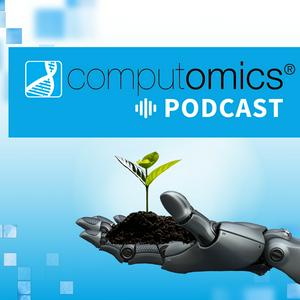
Obtenha o aplicativo gratuito radio.net
- Guardar rádios e podcasts favoritos
- Transmissão via Wi-Fi ou Bluetooth
- Carplay & Android Audo compatìvel
- E ainda mais funções
Obtenha o aplicativo gratuito radio.net
- Guardar rádios e podcasts favoritos
- Transmissão via Wi-Fi ou Bluetooth
- Carplay & Android Audo compatìvel
- E ainda mais funções


Computomics: Discussions On Innovations To Drive Advanced Agriculture Solutions
Leia o código,
baixe o aplicativo,
ouça.
baixe o aplicativo,
ouça.


